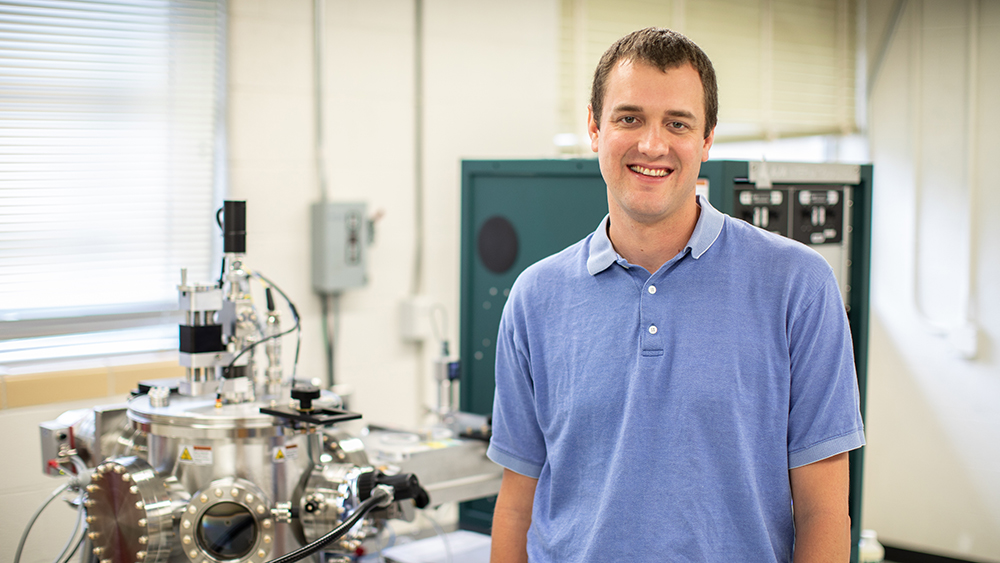
Dr. Matt Pharr has been awarded National Science Foundation (NSF) support for his work on developing improved rechargeable batteries.
Pharr, an assistant professor in the J. Mike Walker ’66 Department of Mechanical Engineering at Texas A&M University, was selected for the 2020 NSF Faculty Early Career Development (CAREER) award for his work, an honor designed to allow promising junior faculty to pursue cutting-edge research while simultaneously advancing excellence in education.
In addition to supporting Pharr’s research, the award will also provide resources toward developing interactive and immersive augmented and virtual reality-based learning modules, with the goal of improving undergraduate and graduate students' understanding of the mechanics of materials in electrochemical systems.
“I am honored to receive this award,” Pharr said. “The funding will provide key resources to develop my research program at an important stage in my career. In particular, it will allow me to continue to pursue mechanics of materials-based research in nontraditional areas, in this case, that of electrochemistry.”
From portable electronics to electric vehicles, rechargeable batteries are abundant in daily life, with lithium-based batteries often selected as the power source of choice. By properly distributing batteries into a connected grid, Pharr said energy storage from renewable resources - such as wind, solar and wave — could be enabled.
Coupled with broader integration with electric vehicles, the emission of greenhouse gases could be reduced. However, challenges still remain.
“Commercial batteries utilize materials with relatively low energy densities: batteries add substantial weight to vehicles and occupy huge volume in portable electronics, but must be recharged every few hours,” Pharr said.
Pharr’s research is investigating lithium and sodium metal anodes and key alloys as potential components of next-generation batteries and how to overcome the challenges of safety and durability currently associated with these chemistries.
“While the electrochemistry of lithium and sodium has been studied extensively, at the heart of the issue lies a mechanics of materials problem,” Pharr said. “Unstable deformation occurs during operation, producing so-called dendrites and damage. Materials and mechanics-based studies are thus necessary to enable safe and durable operation.”
Pharr said the goal of this project is to provide an understanding of the interplay between functional and structural behavior of lithium and sodium anodes.
“Combined with materials discovery of alloys, these studies will guide appropriate charging conditions, applied pressures and material properties that prevent damage with an eye toward enabling safe and durable operation,” Pharr said.